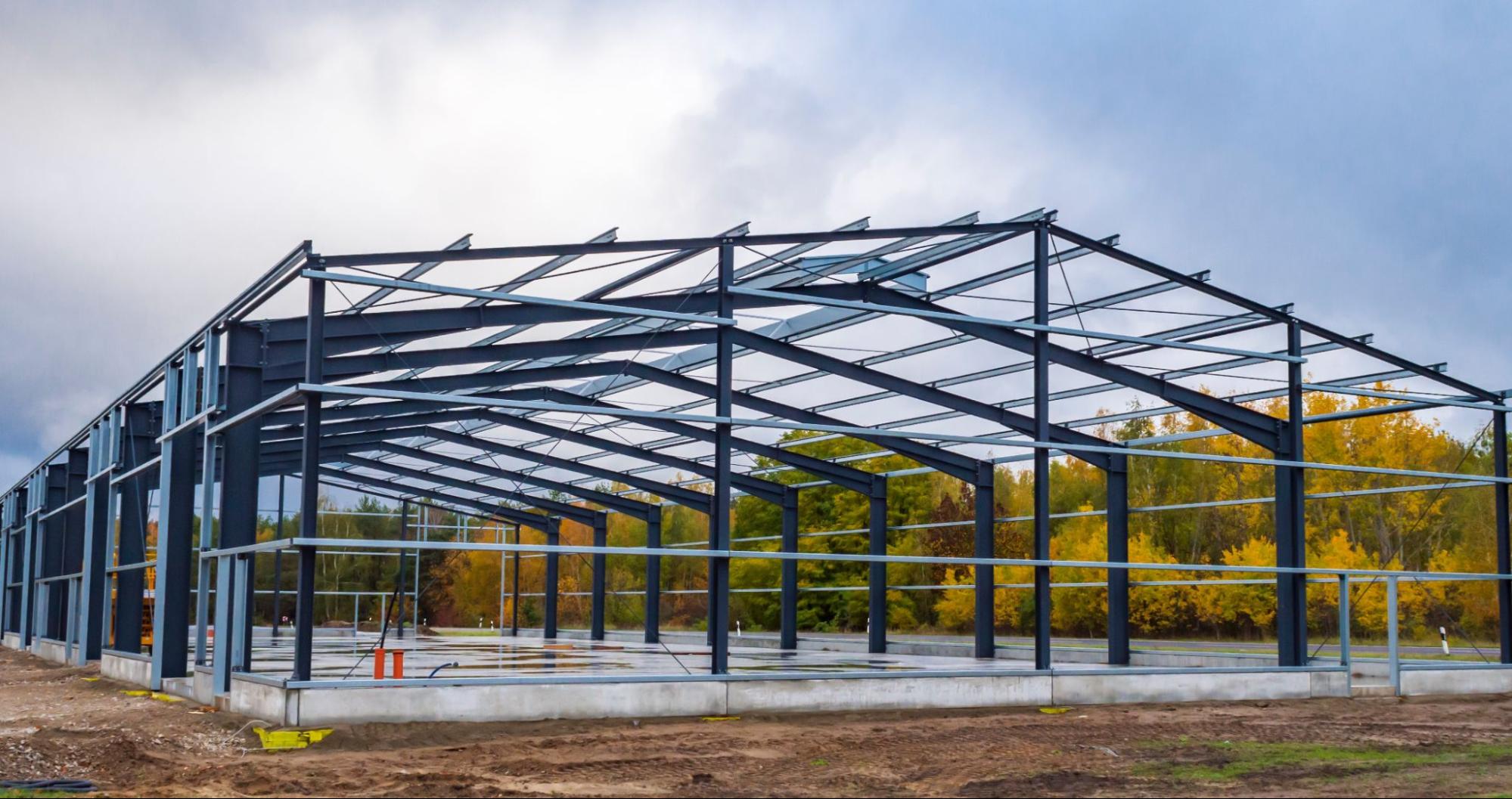- NEWS -

Building a steel building (such as a warehouse, workshop, agricultural storage, or commercial facility) requires careful planning, permits, materials, and construction expertise. Here’s a step-by-step breakdown of what you’ll need:
1. Planning & Design
Purpose & Size – Determine the building’s use (storage, livestock, workshop, etc.) and required dimensions.
Architectural & Engineering Plans – Work with an engineer or steel building supplier to create designs that meet local codes.
Site Evaluation – Check soil conditions, drainage, and accessibility (geotechnical report may be needed).
2. Permits & Legal Requirements
Building Permits – Required from local government (zoning, construction, fire safety).
Environmental & Utility Approvals – If connecting to water, electricity, or sewage.
HOA/Deed Restrictions (if applicable) – Some areas have aesthetic or height limits.
3. Site Preparation
Land Clearing & Grading – Level the ground and ensure proper drainage.
Foundation – Choose between:
Concrete Slab (most common for warehouses/shops)
Pier & Beam (for uneven terrain)
Footings (for larger structures)
Utility Lines – Plan for electrical, plumbing, and HVAC if needed.
4. Steel Building Materials
Primary Framing – Main load-bearing steel columns and rafters.
Secondary Framing – Purlins (roof) and girts (walls) for support.
Wall & Roof Panels – Corrugated or insulated metal sheets.
Fasteners & Sealants – High-quality bolts, screws, and weatherproofing materials.
Doors & Windows – Roll-up doors, walk-in doors, skylights, etc.
Insulation (if climate-controlled) – Fiberglass or spray foam.
5. Construction Equipment & Labor
Crane or Forklift – For lifting heavy steel beams.
Welding & Bolting Tools – For assembling the frame.
Experienced Crew – Steel buildings require precision; DIY is possible but challenging for large structures.
6. Optional Add-Ons
Ventilation & HVAC – For climate control.
Mezzanine Floor – Extra storage or workspace.
Fireproofing & Lightning Protection – Especially for grain or chemical storage.
Solar Panels – Many steel buildings support rooftop solar.
7. Cost Considerations
Basic steel buildings cost 25/sq. ft. (unfinished).
Fully finished (insulated, electrical, plumbing) can reach 50+/sq. ft.
Larger buildings (50’x100’+) have lower per-square-foot costs.
8. Choosing a Supplier/Contractor
Prefab Kits – Companies like Butler, Mueller, Nucor, or Allied Steel supply pre-engineered kits.
Local Builders – Hire a contractor experienced in steel structures.
Warranty & Maintenance – Ensure the supplier offers corrosion warranties (e.g., Galvalume coating).
Final Steps
Inspection – Required before occupancy (foundation, framing, electrical, etc.).
Finishing Touches – Paint, signage, interior fit-out.
Maintenance Plan – Check for rust, sealant wear, and structural integrity over time.
Would you like recommendations for suppliers or tips on cost-saving strategies?
Related Posts
Online Message
TOUCH WITH US
